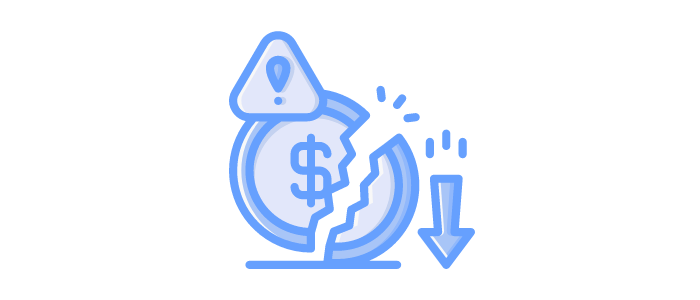Key Difference: The main difference between deficit and debt is that a deficit is the shortfall of revenue over expenses in a particular period of time, while debt is the total amount of money that a government or company owes to creditors.
The deficit is usually measured on a yearly basis, while debt can be measured over shorter or longer periods of time.
Another difference is that debt is a liability, meaning that it represents a financial obligation that needs to be repaid, while the deficit is not a liability.
What is the meaning of deficit?
A deficit is an imbalance in the financial accounts of a company or government. This can be caused by spending more money than is earned, or by taking on too much debt.
A deficit can also refer to the amount by which a particular account is in the red.
For example, a company may have a $10,000 deficit in its accounts payable. This means that the company owes $10,000 more to its suppliers than it currently has in cash on hand.
What does debt mean?
Debt is an obligation to pay money that has been borrowed.
The most common type of debt is a loan, which is when someone borrows money from a bank or another lender in order to purchase something such as a car or a house.
Other types of debt include credit card balances and student loans. When a person agrees to borrow money, they also agree to pay back the debt plus interest. This interest is what helps lenders make a profit on their loans.
Deficit vs Debt
One of the biggest differences between deficit and debt is that deficits are short-term, whereas debt is long-term.
They both occur when a company or government spends more money than it earns, but deficits are typically resolved within a year or two, while debt can take many years to pay off.
Deficits also refer to the amount by which an account is in the red, while debt refers to the total amount that has been borrowed.
Main Differences
Key differences between deficit and debt include –
Type of liability
One of the important differences between a deficit and debt is the type of liability incurred.
Deficit refers to when expenses exceed income, resulting in negative net worth. Debt, on the other hand, is created when someone borrows money and incurs a legal obligation to pay it back with interest.
Duration
A deficit is typically a short-term issue, meaning it can be resolved by increasing revenue or decreasing expenses.
Debt, on the other hand, is a long-term liability that needs to be repaid over time.
Cause
The root cause of deficits and debt can be different as well. Deficits can be caused by excessive spending, low revenue, or a combination of the two.
Debt, on the other hand, is often incurred when someone takes out a loan to finance a purchase. So, the cause of debt is external, while the cause of a deficit is internal.
Government
Deficits and debt can have different implications for governments. Deficits can lead to an increase in the public debt level, while debt can lead to a decrease in it.
This is because government borrowing (or incurring debt) can help finance government spending, which leads to a higher public debt level.
The opposite is true as well: when the government pays down its debt, the public debt level decreases.
It’s highly important to note that a country’s public debt level is not the same as its national debt level.
The latter is the total amount of debt owed by the government to domestic and foreign creditors.
Imports and Exports
Deficits and debt can also have an impact on a country’s trade balance. A deficit results in more imports than exports, while a surplus results in more exports than imports.
This is because when a country runs a deficit, it has to import goods and services from other countries to meet its needs.
Conversely, when a country runs a surplus, it exports more than it imports, which results in more revenue from foreign buyers.
Similarities
Despite these distinctions, deficits, and debt do share some similarities.
For example, both can lead to a country’s financial stability being compromised.
Additionally, both need to be repaid over time with interest. Finally, both can have negative consequences for the economy if not managed properly.
FAQs
The federal deficit is the amount of money that the federal government spends in a given year that is more than it takes in.
The national debt is the total amount of money that the federal government owes to its creditors.
The national debt includes both the current federal deficit and all of the money that the federal government has borrowed in the past.
So, they are not exactly the same, but they are related. The national debt is always larger than the federal deficit because it includes past debts as well.
A deficit can lead to debt if it is not balanced by increased revenue or cuts in spending.
When a government or company spends more money than it brings in, it needs to borrow money in order to make up the difference.
This added debt can then lead to problems such as higher interest payments and less money available for important things like schools and hospitals.
